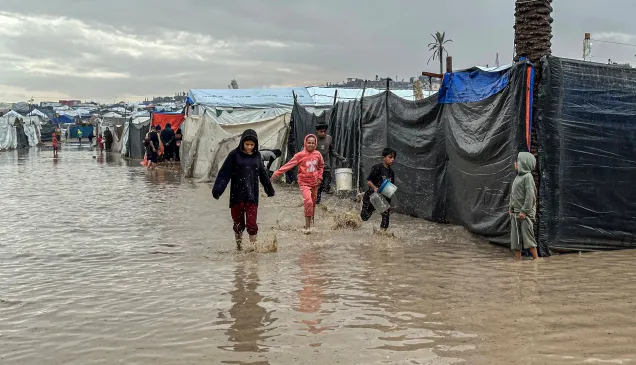Tawfiq Al-Halawani, a shop owner in the Old City of Jerusalem, says fear of the virus, preventive measures and suspension of salaries have decimated the local economy. “Merchants living in East Jerusalem find themselves surrounded by trouble,” he says.
Hope and fear fill the West Bank’s silent markets
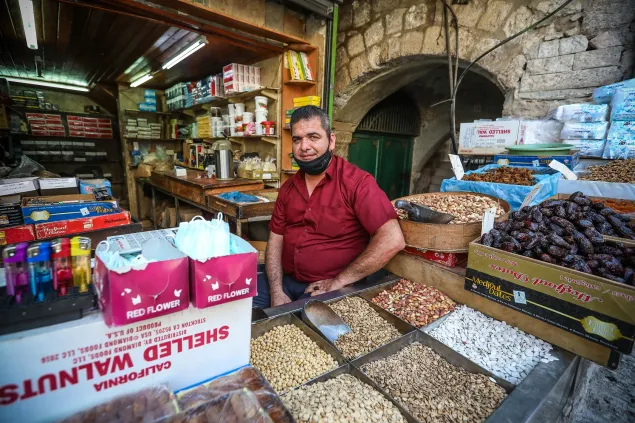
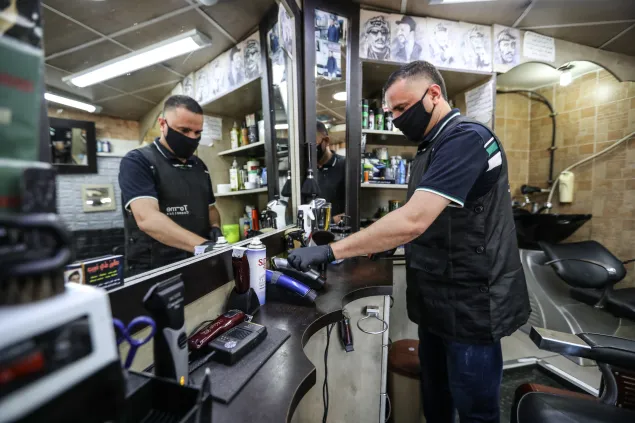
Ali Thweib, a barbershop owner from Bethlehem, is struggling. He has seen a serious decline in numbers of customers in light of the pandemic, as people prefer to cut their hair in their own homes to save money during the crisis.
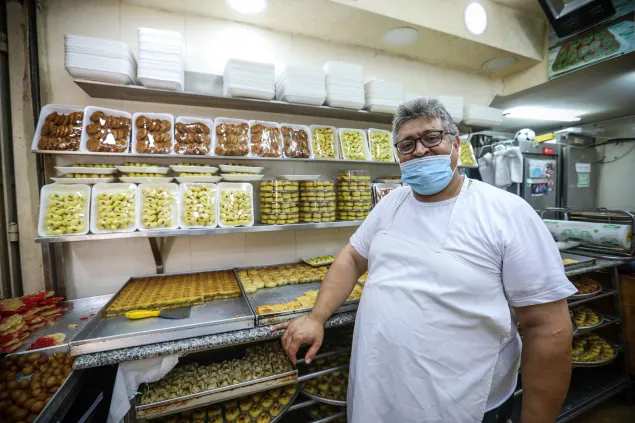
Sami Abu Subaih owns a sweetshop in the Old City of Jerusalem. “My customers have decreased by 75%, the streets are empty, and people are afraid,” he says.
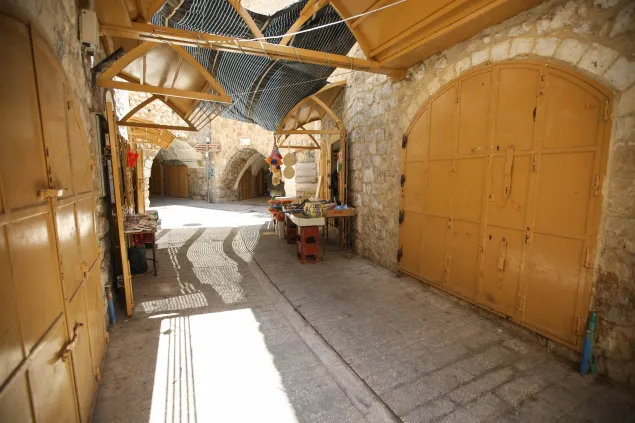
The markets of Hebron, already suffering due to the tensions in the city, are now almost completely devoid of visitors.
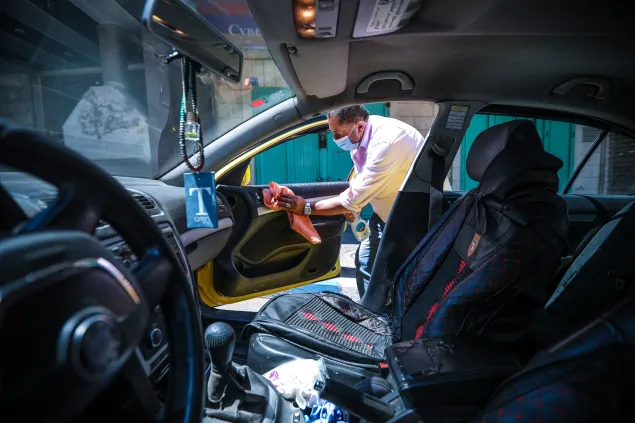
Bethlehem was the first West Bank city to be hit by the virus, which has destroyed its main pillar of economic activity, tourism.
Nasri Obaidullah, a taxi driver in Bethlehem, is pessimistic: “Life here has stopped with the suspension of tourism. We have been suffering from a lack of demand for taxi service for months, and we can barely meet our needs and those of our families, not to mention the costs of licensing and insuring the car.”
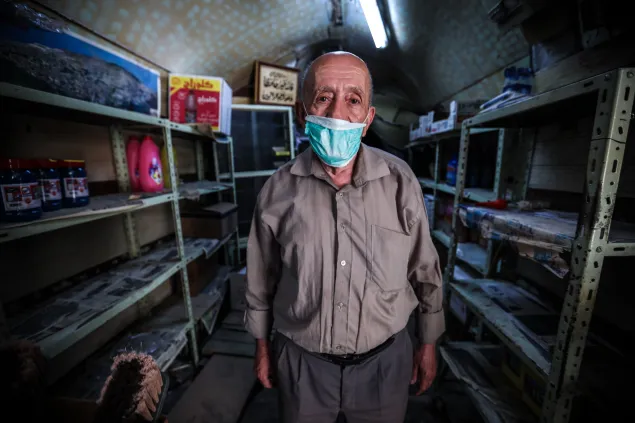
Haj Abdul Rahim Abu Ghazaleh, is the owner of a small grocery store in the Old City of Nablus, which once teemed with visitors from other Palestinian cities.
Haj Abdul Rahim says “the middle class has been crushed” by the coronavirus pandemic.
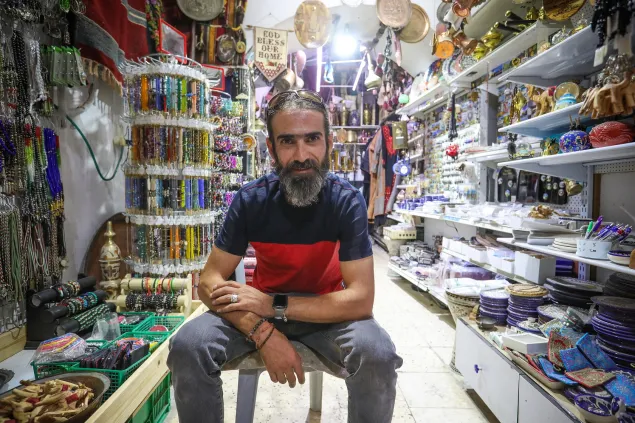
Young Jerusalemite Walid Ghneim, owner of a souvenir shop in the Old City of Jerusalem, only opens his shop to ventilate it.
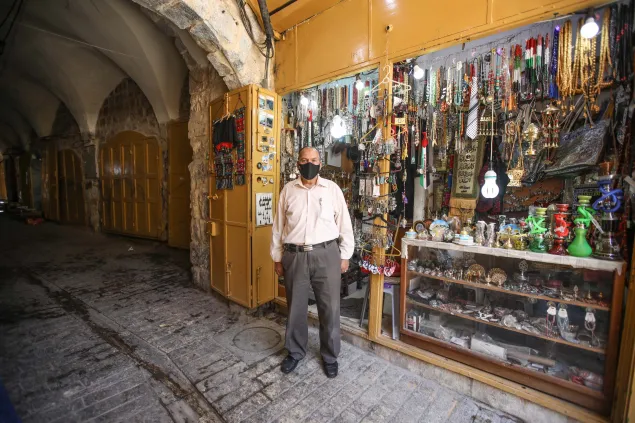
Tawfiq Mustafa Al-Tamimi, aged 73, sells antiques and gifts in the Old City of Hebron.
“In the year 2020, we did not make any profits!” he says. “Even during the season of Ramadan, we only worked 20 days, and we did not receive any aid.”
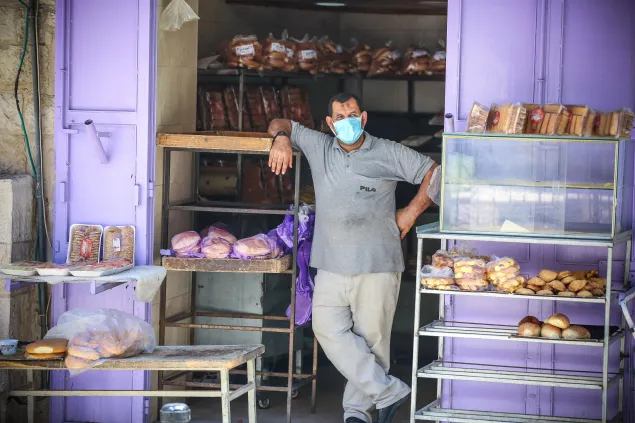
Ziad Shweiki works in a bakery near the Church of Nativity in Bethlehem.
Ziad says: “The economic situation is very difficult, the city is almost empty, and movement in the market in general has stopped. I hope that the pandemic cloud will pass, and life will return to normal soon.”
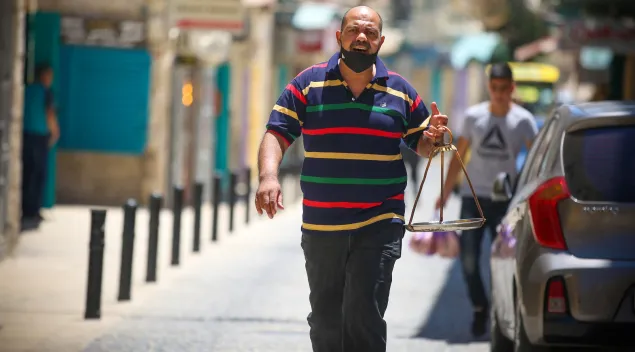
Sami Khamis’s coffee shop is a Bethlehem institution. It is mostly closed these days.
Sami says: “War is much better than the coronavirus pandemic, because in war you know who your enemy is. I hope that things will return to their usual state.”
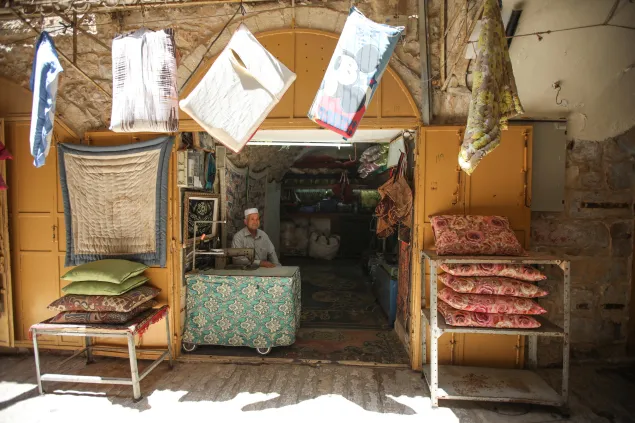
Abdul Sami’ Abdul Rahim Eseileh, from the Old City of Hebron, is 68 years old, and he works in upholstery.
Abdul Sami’ says: “The stage we are going through now is one of the most difficult ones, and we have been affected a lot by this disease. This year is considered one of the most difficult we’ve experienced so far.”
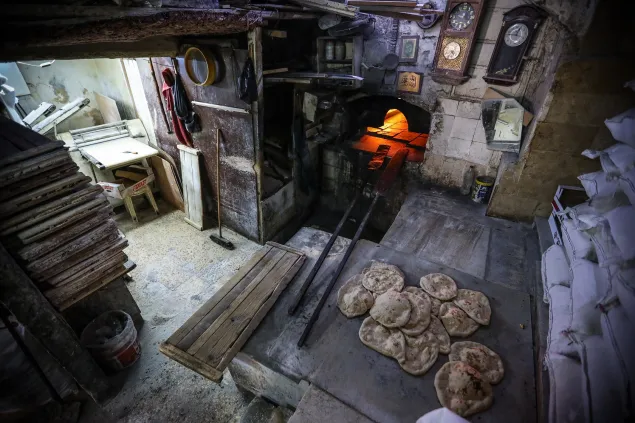
The Al-Manna’ bakery in the Old City of Nablus is owned by five brothers who support their families with the income. They are baking a fraction of what they usually bake.
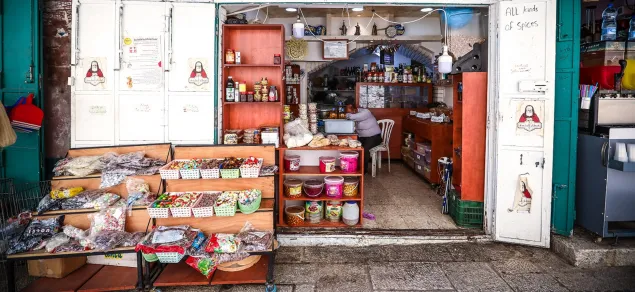
Many of the stores of the Old City of Jerusalem are closed. The streets are almost empty. Stores that remain open are struggling.
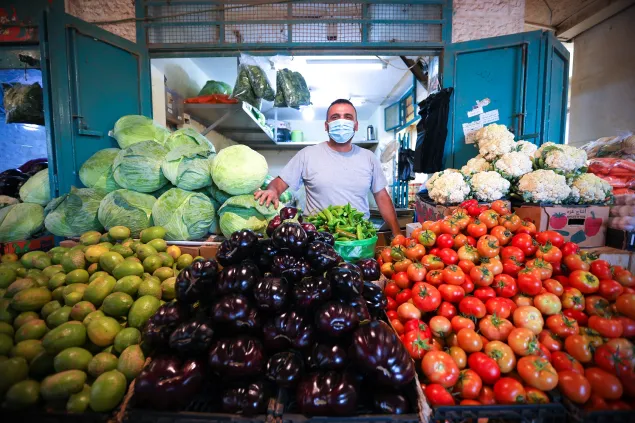
Waad Masalmah, earns his livelihood selling vegetables in the market in Bethlehem. But there are no customers.
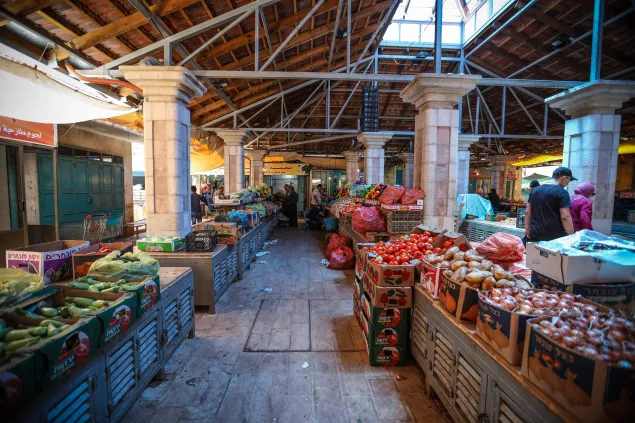
Bethlehem fruit and vegetable market is almost empty.
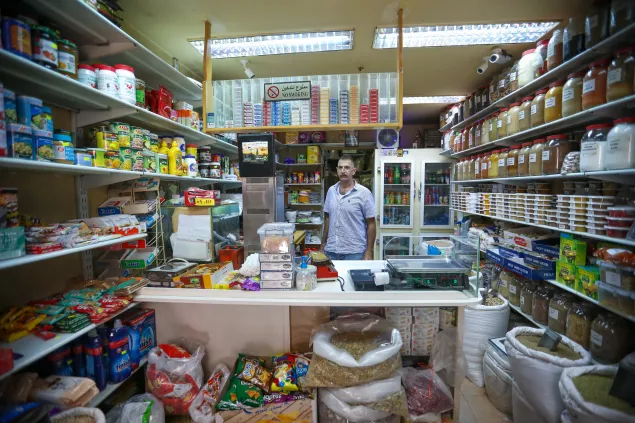
Tawfiq Al-Ama, owner of a coffee-grinding shop in Bethlehem, says: “There is no tourism at all, and citizens have reduced their purchase of coffee because it is not an essential commodity for them and because the current economic situation is very bad. Every day I open the shop, I bear operational costs at my expense and I don’t make any profit.”
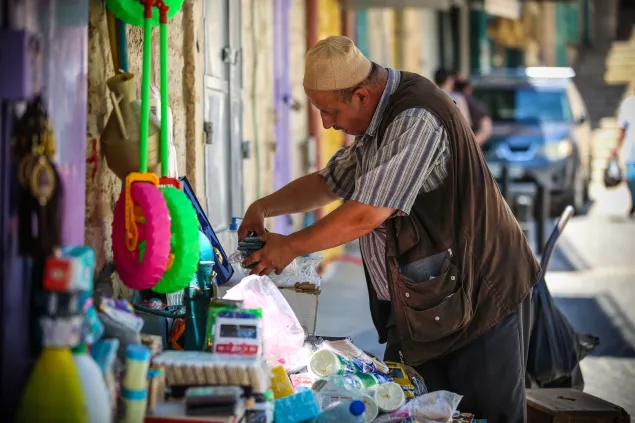
An old man runs this kiosk selling miscellaneous items near the Church of Nativity in Bethlehem. He sells nothing, but keeps it open out of hope.
As a second wave of COVID-19 ravages the West Bank, the bustling old markets of its largest cities have fallen silent. In Nablus, Hebron, Bethlehem and the Old City of Jerusalem, worried shopkeepers keep their empty stores open, clinched in a merciless double-bind: only by staying open do they stand a chance of rebuilding business, yet every day they open their doors they hemorrhage money.
Yasser Subha, a dairy seller in the Old City of Nablus, has been working in his profession for decades. He’s never witnessed an economic crisis like this one. “The situation of my city is like a siege,” he says. “Movement is very limited, and fear that coronavirus infection will spread is everywhere.”
Ahmed Al-Shakhshir, a young man who owns a store selling cheese and olives, spoke of his hope “that life in Nablus will return to normal and that the voice of merchants and passers-by will break the forced silence of the city.”
Ahmed is not the only one. Sami Khamis is a larger-than-life presence in Bethlehem, which throngs with Christian tourists visiting the Church of the Nativity—in normal years. Having a coffee with Sami the kahwajji, or coffee seller, was almost a rite of passage for visitors to the city. But Sami’s voice, calling “tea… coffee” no longer reverberates down Church of Nativity Street as it once did. There are no tourists to hear it.
Close by, an old man sells miscellaneous items near the Church of Nativity. Every day, he sets up his kiosk but sells nothing. "This kiosk is the only hope I have left that the future has better days in store for me,” he says.
To stop trading is to give up, but when business is not closed, it is down. At the Haj Abu Osama Manna bakery in Nablus, they used to bake about five bags of flour per day. Now they don’t bake more than half or two-thirds of a bag. Five families depend on the bakery to survive.
The story is the same in Jerusalem’s Old City. Walid Ghneim, the young owner of a souvenir shop, says he “no longer remembers” what the market was like before the pandemic. “I open the shop only to ventilate it, because the movement is very little in general, and the tourist movement is non-existent,” he says. He hopes desperately that the situation will not extend beyond the end of the year.
Of course, bad business has bad consequences. Fathi al-Jabrini works as a food seller in the Old City of Hebron, next to Al Ibrahimi Mosque. Hajj Fathi says: “Every month, I have medication costs that reach 500 shekels, and now we do not earn more than 10 shekels because of the coronavirus.”
A return to some kind of normalcy will depend on Palestinian authorities getting the virus under control. According to an International Committee of the Red Cross survey of Palestinians, compliance with prevention measures in the West Bank is significantly lower than in Gaza and East Jerusalem. In June, 28% reported that they still weren’t wearing masks, 22% said they weren’t avoiding crowded places and 21% weren’t staying home when feeling sick.
Clearly, there is work to be done—before the markets of the West Bank return to the hustle and bustle that used to characterize them, and small businesspeople can sleep easy once again.



